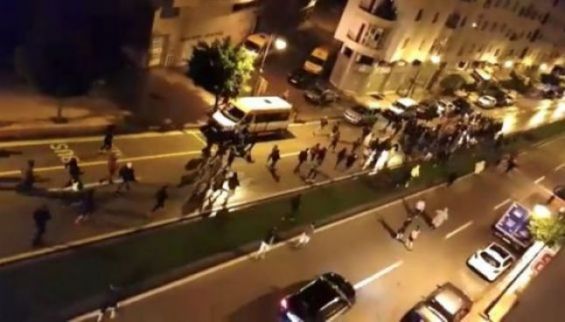During the weekend, tens of Moroccans breached the state of health emergency, declared by the government as part of its plan to fight against the spread of coronavirus, hitting the streets of Tangier and Fes in irresponsible marches.
Men, women and children marched in the two cities, chanting «Allah Akbar» (God is the greatest), and protesting against the closure of mosques and the suspension of collective prayers. In some videos that went viral on social media, some of these groups have even gathered in front of a mosque, praying to God to lift the virus off the country.
On social media, Moroccans went crazy after watching said videos. Some of them took to Twitter, Facebook and even Instagram to denounce the irrational move, accusing these people of putting their lives and the lives of others in jeopardy amid the outbreak.
Unmanaged fear
While some slammed these people for breaking the lockdown, others questioned the reasons behind their sudden yet not-so-smart behavior. To Moroccan psychosociologist Mohcine Benzakour, last weekend’s «marches» are mainly linked to «unmanaged fear».
«One of the reasons why these people reacted in such a way is because they couldn’t manage their fear and as a result they acted in an irrational way», Benzakour explained. «This kind of behavior can be noticed among children who can lie or steal when they feel that they can’t cope with their fears», he added.
«Instead of trying to get informed and look for ways to protect themselves from the virus to manage their fears and find rational answers to their questions, they preferred to voice them in a way that is coated in a religious discourse», he regretted.
Benzakour also explained why these «marches» were marked by a religious discourse. «These people are emotionally-driven and that is why they reach for religion during crises’ times», he argued.
«It just shows that they have an unstable relationship with religion and seek what is mythical to cope with their fears», he argued. «People need to understand that protecting themselves is the only key to avoiding this virus», he concluded.
Lack of awareness
Meanwhile, fellow Moroccan sociologist Ali Chaabani believes that the «lack of awareness among citizens and the tendency of taking this pandemic lightly has contributed to the emergence of such reactions». He then referred to «the lack of comprehension of the consequences of some practices, the lack of responsibility and losing trust in the State’s decisions».
«For these people, the State, which offers them nothing, imposes restrictions on them», added the sociologist, insisting that «part of the population unfortunately does not believe this pandemic really exists and prefers to fall for irrational conspiracy theories».
«Some people take this opportunity to express their false beliefs in this way, while others face the situation unconsciously, irresponsibly or ironically», he said.
The sociologist recalls that «others on the other hand firmly believe that invocations and prayers are enough to face this pandemic, which should be respected». «But, Islam has never encouraged people to just pray it insisted on work, action and avoiding calamities», he concluded.




 chargement...
chargement...












